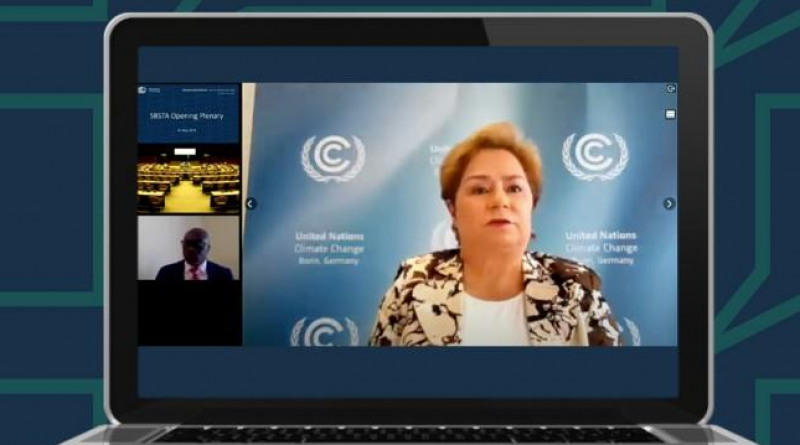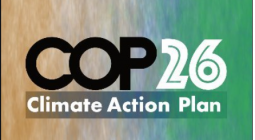UN: Progress Urged as May-June Climate Change Conference Opens in Preparation for COP26.

UN Climate Change News, 31 May 2021 – Against the backdrop of a new international warning that the world is dangerously close to exceeding the Paris Agreement goal of limiting global temperature rise at 1.5C, governments today began three weeks (May 31 to June 17, 2021) of virtual discussions designed to pave the way for a successful UN Climate Change Conference (COP26) this November in Glasgow.
Following a year of limited and informal virtual meetings in 2020 due to COVID-19, these subsidiary body meetings provide governments with opportunities to make progress on several outstanding technical issues that are key to achieving success at COP26, implementing the Paris Agreement and ultimately limiting global temperatures to 1.5C.
The need for urgent progress was underlined by a new assessment, published by the World Meteorological Organisation (WMO) last week, indicating there is now about a 40% chance that the annual average global temperature will reach the 1.5C mark in at least one of the next five years. Exceeding this goal will likely impact food security and lead to more frequent and severe climate impacts such as heat waves, storms and sea level increases.
“It’s time to wrap up outstanding negotiations and implement the Paris Agreement,” said Patricia Espinosa, Executive Secretary of UN Climate Change. “The WMO’s assessment is a clear warning that time is running out for the world to achieve the goals of the Paris Agreement. Unleashing its full potential will not only address climate change but help the world build forward from COVID-19 and drive the transformation towards a cleaner, greener and more sustainable future. We stand at a unique and unprecedented moment in time and we cannot afford to miss this opportunity.”
“This is the time for leadership. This is the time for decisions. These May-June sessions must maximize progress and limit delays. They are a critical milestone in preparing the ambitious and balanced outcome that we need in Glasgow.”
Key items for discussion include fulfilling pre-2020 commitments; support to developing countries; finalizing the details that will allow all countries to communicate their climate actions transparently under the Paris Agreement; finalizing the details of how the agreement’s carbon market and non-market mechanisms will work; and raising ambition on both resilience-building and emission reductions.
“With just over five months to go until COP, the message is clear - we must step up our global response to the climate crisis. It is vital we make this session count, by moving past positional statements and making tangible progress within the UNFCCC process. Working together, we must consolidate options and draft text that we can bring to COP26 for finalization and adoption, so that we arrive in Glasgow having done our homework and ready to deliver against the goals of the Paris Agreement,” said Alok Sharma, the incoming President of COP26.
“We reiterate our firm commitment to working extremely closely together to guide the UNFCCC intergovernmental process in a transparent and inclusive manner towards a successful outcome at COP26 in Glasgow this November. We count on Parties’ and non-Party Stakeholders’ understanding, support and collaboration in this matter,” said Carolina Schmidt, President of COP25.
Convening a session of the subsidiary bodies virtually is new to the process. However, last year’s virtual meetings provided the countries and non-Party Stakeholders the opportunity to continue discussions on climate action.
“Last year, countries managed to continue their exchanges on various topics and to maintain momentum of the process through their active participation in several virtual events. They have gained experience on how to use the virtual tools and platforms provided by UN Climate Change to support their work,” said Tosi Mpanu Mpanu, Chair of the Subsidiary Body for Scientific and Technological Advice (SBSTA)
Marianne Karlsen, Chair of the Subsidiary Body for Implementation (SBI) said: “I am confident that the outcome that will be captured in informal notes under Tosi’s and my authority will bring the reassurance needed by Parties that what we will be doing in June will bear fruits that can be picked up at a subsequent sessional period and be brought to maturation at the end of Glasgow.”
The virtual venue is open to registered participants. The SBSTA and SBI sessions will start on Monday 31 May.
The secretariat will continue to provide support – including logistical and connectivity needs - to ensure the full and effective participation of Parties.
31 May 2021
UNFCCC




